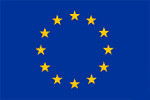Local governments of European countries, and also across the world, are required to disseminate information concerning risks to public health and to promote messages that encourage healthier life style options to improve public health and reduce the huge burden placed on state spending from state subsidized health care in countries with social security systems such as Germany, the UK and France. In this context, Public Service Announcements (PSAs) are non-commercial advertisements intended to achieve attitudinal and behavioural changes in the general public. PSAs are at the core of many public health campaigns against smoking, and other possible public health problems. Other applications include the promotion of desirable societal behaviours such as protecting the environment and safer driving. When effective, PSAs are of substantial benefit to public welfare. However, the lack of reliable, quantitative and objective means of evaluating advertising effectiveness before the dissemination is one of the key impediments to better PSA outcomes. In addition, poorly designed PSAs can often have effects that are contrary to their desired goals.
Over the past few years, considerable developments in methodologies to record brain activity (e.g. functional Magnetic Resonance Imaging (fMRI), Electro-Encephalography (EEG)) and psychophysics have allowed novel paradigm designs and analyses providing key insight into both the explicit (conscious) and implicit (subconscious) cerebral responses to advertising messages across different medias (press, radio, TV, internet, etc.
The integration of neuroscientific insights and methodologies to generate and validate a set of software tools that can be used to inform EU policymakers and local governments as to how to produce optimal PSAs that will have a substantial impact on encouragement of healthy life style choices for EU citizens related to smoking. The technological breakthrough is the exploitation of cross-disciplinary expertise to bring relevant multidisciplinary, including neuroscientific, results into a new marketing perspective, with the aim to evaluate and improve PSAs. The project aims at generating, validating and providing a set of ICT tools to better evaluate the effectiveness of the PSAs for the EU Ministers of Health and Social Affairs. The concrete objective of the project will be to generate software applications and “white” documents in which the “rules” for more effective and higher cost-benefit PSAs will be described.
The novelty of SmokeFreeBrain lies in the integration of modern neuroscientific tools with the latest thinking and methodological approaches available in the fields of marketing and social science and the interaction of experts from academia, private companies and governmental organizations. The purpose is to derive a new tool that can measure and predict the efficacy of PSAs related to smoking abuse. So, the project envisages to offer the EU commissions/governments “neuroscience based” indicators to increase the efficacy of PSAs.
The Pilot study scope
In this framework a pilot study will be conducted in Italy in order to investigate and identify peculiar patterns characterizing effective PSAs. These patterns will be derived from EEG, autonomic responses and eye tracking measures on real referenced PSAs aired in the last years in EU and not EU countries.
Where it is going to take place
The experimental sessions will be performed on healthy subjects at the laboratory of Industrial Neuroscience, at the University of Rome Sapienza.
What participants are going to do during the pilot? For how long?
Healthy participants, age ranging from 16 to 55 years old, will be enrolled in the study and they will be asked to watch on a screen some PSAs, wearing an EEG cap and a couple of electrodes on their fingers, for a total duration of approximately 30 minutes. At the end of the “movie” participants will be asked to fill in a questionnaire concerning: what they have just watched and some personal information about them.
Study duration:
The pilot recording phase will be performed beginning from May 2016 to June 2017.
Preceding this recording phase, there will be an essential behavioural phase concerning: perception and evaluation of PSAs images, socio-demographic information and smoking and other substances consumption habits. This phase will be constituted by a completely anonymous on line questionnaire that could be filled in by persons aged 16-55 years old both smokers and not smokers, and will be available in: English, Greek, Italian, Serbian, Spanish and Bulgarian. The questionnaire compilation will be available in the first fifteen days of April 2016 and it will represent a concrete opportunity to help smoking-related research.
Research conducted by the Sapienza University’s group on Public Service Announcements is partially supported by BrainSigns srl, a Sapienza’s spin-off focused on the analysis of the physiological signal in response to the perception of stimuli, who granted the use and expertise concerning some instruments. To get a deeper understanding of BrainSigns’ activities, please find the link below.


